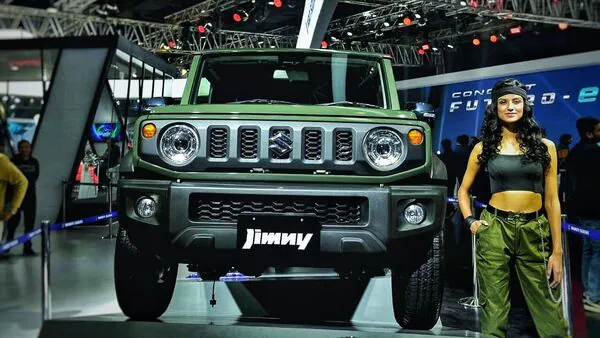Maruti Suzuki’s global unveiling of an all-electric SUV concept at the Auto Expo 2023 is expected to be one of the show stoppers and the first sign of the company’s EV aspirations for the Indian market. India’s largest manufacturer is yet to produce an EV and has been significantly slow in India’s fast-growing electric car market, where Tata Motors has captured an 84 percent share in less than four years.
The EV idea that Maruti Suzuki will present is significant since it will preview the Japanese automaker’s first all-electric car (code: YY8). This vehicle is slated for debut in January-February 2025, and represents the start of the company’s EV adventure. This EV, like the Futuro-e in 2020 and the Future-S in 2018, will be Maruti Suzuki’s hero concept for 2023.
The Maruti YY8 midsize SUV in February will be co-developed with Toyota, who will also have its own version of this model. The YY8 will be a worldwide product, developed for both domestic and foreign markets, with approximately half of the output destined for international markets. The YY8 will be manufactured in Suzuki’s Gujarat plant for the domestic market as well as overseas.
In true EV form, the YY8 concept is slated to feature a radical and futuristic design language that will be entirely distinct from the company’s current crop of ICE cars. It will be over 4.2 metres long, about the size of a Creta, with a wheelbase of 2,700mm, which is larger than even the MG ZS EV.
The Maruti Suzuki YY8 electric SUV is based on the 27PL platform, which is a variant of Toyota’s 40PL worldwide platform.

Its long wheelbase allows for a large battery pack and a spacious cabin. The YY8 will feature short overhangs and wheels pushed to the edges as much as possible to maximise space without the packaging constraints of a standard ICE car, as is the trend.
The YY8 SUV will be available with two battery pack options: 48kWh and 59kWh. Under regular test conditions, the former is predicted to have a range of approximately 400km, while the latter is expected to have a range of approximately 500km. BYD, a Chinese battery company, will supply Maruti-Suzuki with LFP blade cell batteries. Blade cell technology offers significant weight, packaging, and range improvements, and Maruti Suzuki expects that its blade cells will give the YY8 a competitive advantage, particularly against Tata Motors’ enormously popular range of EVs, which employ traditional (but inefficient) LFP cylindrical cells.
The YY8 will be available in both two-wheel-drive and all-wheel-drive configurations, though it is unclear whether AWD will be available in the domestic market. Power outputs are predicted to be in the 138hp to 170hp range. The Maruti Suzuki YY8 electric SUV, as well as its Toyota counterpart, are slated to arrive in India in early 2025. According to sources, the company is aiming for a pricing range of Rs 13 lakh-15 lakh, which translates to an MG ZS EV-sized SUV for the price of a Tata Nexon EV. Maruti Suzuki may have been slow to the EV game, but if the YY8’s features (and price) are anything to go by, this could be the model that breaks Tata Motors’ party.
In addition to the YY8 concept, Maruti Suzuki is expected to reveal production versions of the YTB SUV and the 5-door Jimny. Maruti is also anticipated to show off the Wagon R’s flex fuel prototype, which was recently shown off in Delhi.


